Nebojša Bakočević
Nacimiento : 1965-02-15, Belgrade, Serbia
Historia
After success and fame he acquired in the 1980s and early 1990s, his bad boy reputation takeover his life. As a result of using drugs and bad reputation, Bakočević is out of movies since early 90s, except his episode role in the film the Knife (1999.).

Tip iz Ofsajda 2
A young fan of Red Star Belgrade FC is disappointed with team's performances in the last 20 years, ever since his beloved club won the European Champions Cup. He comes up with idea to bring the former Red Star player Nemanja Vidic from Manchester United F.C., by collecting money for this hardly feasible task.
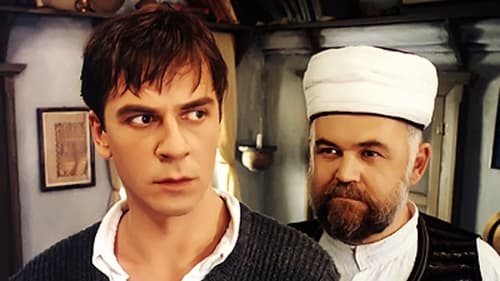
Ustaški lekar
In attempt to find out who he is and where his roots lie, Alija Osmanović discovers something far deeper and more important. He slowly discovers an evil that follows him as his destiny regardless of what his ancestors were called. Trying to find the reasons for this evil, he finds himself in a vicious circle. Running away from an irrational fear within him, he eventually finds the road to his faith.

Elred
Overcome by an irrational rage, a 17 year-old hatchet man kidnaps his boss who had managed to cover up his true identity and become part of the establishment. The Kid takes this one time hero of his to a hideout in a huge, deserted steel mill where the two experience a kind of enlightenment after some twenty hours of infernal games and agony.

Garfild
Belgrade in 1992. - breaking up of Yugoslavia, blockade, shortages, food queues, student rebellion. Life of two Belgrade families and personal drama of their members, caused by social breakdown and civil war.

Aleks
Deni, a young woman working in McDonalds, has dreams of fame. When a producer discovers her singing talent he gets her into the game. However, she soon feels overburdened. Fortunately, the ghost of Elvis is there to help her.
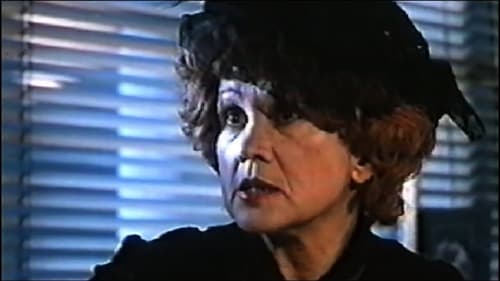
Đorđe
1992 Belgrade. Aleksa works the night shift at an occult magazine to avoid military police, draft and war. Old colleague, Mrs. Kosara, offers him shelter at her place. Soon, a dead friend warns him in his dream about the old lady.

Kuglica
In a near-future Belgrade, a DJ stirs up trouble with his rocking anti-establishment broadcasts. After his station is shut down, he takes to the street and starts transmitting revolution with the police hot on his trail.

Kant
Čeda is a clerk, pushed around by everyone. He is "everybody's girl". He walks his poodle, makes coffee for a group of poker players and their wives. Čeda goes to sanatorium because his mother-in-law decided to go on vacation just then, and he is her obligatory companion. When he returns alone, because of his job, he finds big fuss in his house, many tempting, unknown girls, local bullies and other, funny creatures. He is wondering how to get out of it.

Dear Video is a black epistolary comedy which stars some of the finest actors from the former Yugoslavia. The film is constructed around the video 'correspondence' between two branches of a family, one living in Germany and pursuing 'modern' life and the other one living in a little village in Yugoslavia clinging to tradition. Through the home video 'letters' sent back and forth, petty jealousies, love liaisons and financial squabbles drive the family to the brink of war, a situation that reflects the collapsing state of affairs in what was then Yugoslavia.

Pavle Pavlović
The plot lasts from 1945 until today's day. Pavle, Stojan and Dragisa, the three war friends are taking different positions within the society immediately after the war. Pavle, a former war commissar, is now a school teacher. Thanks to him, Stojan, who was a bakery assistant before the war, does the job of a district committee's secretary, while Dragisa works in the state's secret police. The reason of conflict between Pavle and Stojan in 1947 was Stojan's fiancée Lena, who loves Pavle, marries him and gets pregnant, right when Pavle is taken to the state prison. Stojan accepts his wife and kid again, but the avalanche of political events will make all them unable to stop the inevitable catastrophe.

Darko
Omnibus film, consisting of three independent parts: in the first story, Koma, a failed rocker, wants to prove to his producer father that newly composed music could be better than his. He becomes a mysterious masked folk singer-known as Ninja. In the second, Dracula is killed... again. This time he does not dies oby way of a wooden stake, a silver bullet, or a cross. A blonde woman manages to deprive him of eternal life without the help of sunrise. The last story is about Eve and Djuro. She is creator, he is a musician. They live in a harmonious relationship, but a love letter brings division among them.
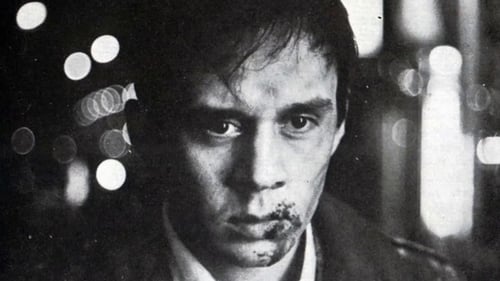
Luka Banjanin is an unemployed young man living with his parents in Belgrade. He hangs out with few devoted friends who, like him, are yet to find place in a society that discarded young intellectuals. He plays saxophone and dreams about going to Oktoberfest, the annual beer festival in Munich, but he's being unable to get passport because of a smaller drug incident he had in the past. Totally careless about his long-term girlfriend, he suddenly falls for a mysterious woman who seems to appear in the same places as him, and then vanishes as quickly as possible. Believing that he's at the wrong place at the wrong time, Luka wanders from one misadventure to another, gradually losing the contact with reality and living out his own Oktoberfest in his mind.

Uski
Belgrade in 1963. In a yard surrounded by buildings, a group of young people of different backgrounds and social status, but of similar views about love and self-affirmation, spend their time together. Their friendship is dyed with various events typical for socialism, such as working actions or Youth Day's parade. All what happens within this yard may become an allegory of one generation's destiny.
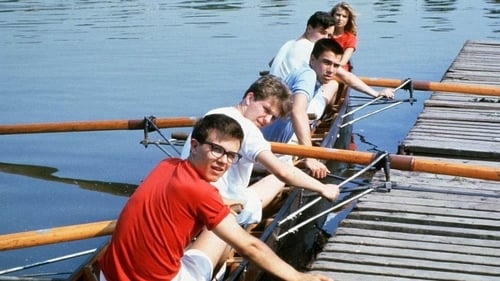
Glen
In 1985, four middle-aged Yugoslav emigres return to Belgrade for the funeral of Mariana, their beautiful compatriot. They called her Esther, for Esther Williams, she was the coxswain for their four-man rowing team, and they each loved her. They'd last seen her in 1953, when they rowed her across the Adriatic, pregnant, to join her exiled father in Italy. In flashbacks we learn the story of their youthful baptism into sex, smoking, rock and roll (Hey Ba-ba-re-bop), Hollywood and Swedish films, blue jeans on the black market, and their rivalry with Ristic, the Communist Party youth leader for whom they had instant antipathy.

Pera Panker
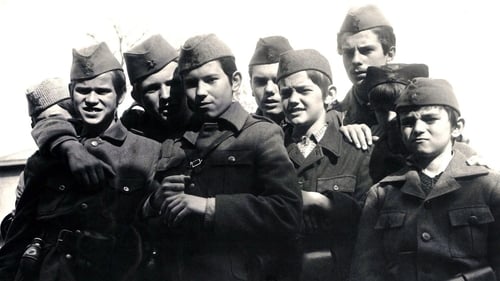
Čikalo
The movie is based on the true story about a group of children, barely teenagers, who joined Yugoslav Partizans after losing their families in WW2. At first, Partizans want to get rid of them, but later they are joining combat ranks. Among them, Bosko Buha would become a legend because of his skill in destroying enemy bunkers.

Žuća
The war is over. Children without mothers and fathers, children of fighters who fell for freedom...This is the story about such boys who placed in the homes for children of fallen soldiers. One of these homes was especially for boys with gift for music. One of them was a boy named Goran. he and his best friend exchanged violins. The difference in violins was only in color, but this one reminded him strangely of the past he past. All his boyish feelings and is tender memories of his mother killed in war, Goran put into his music, producing wonderful sounds on the dark violin. But it was this violin that caused many misunderstanding in the Home.

The tragic story of a heavyweight prizefighter at the end of his career.









